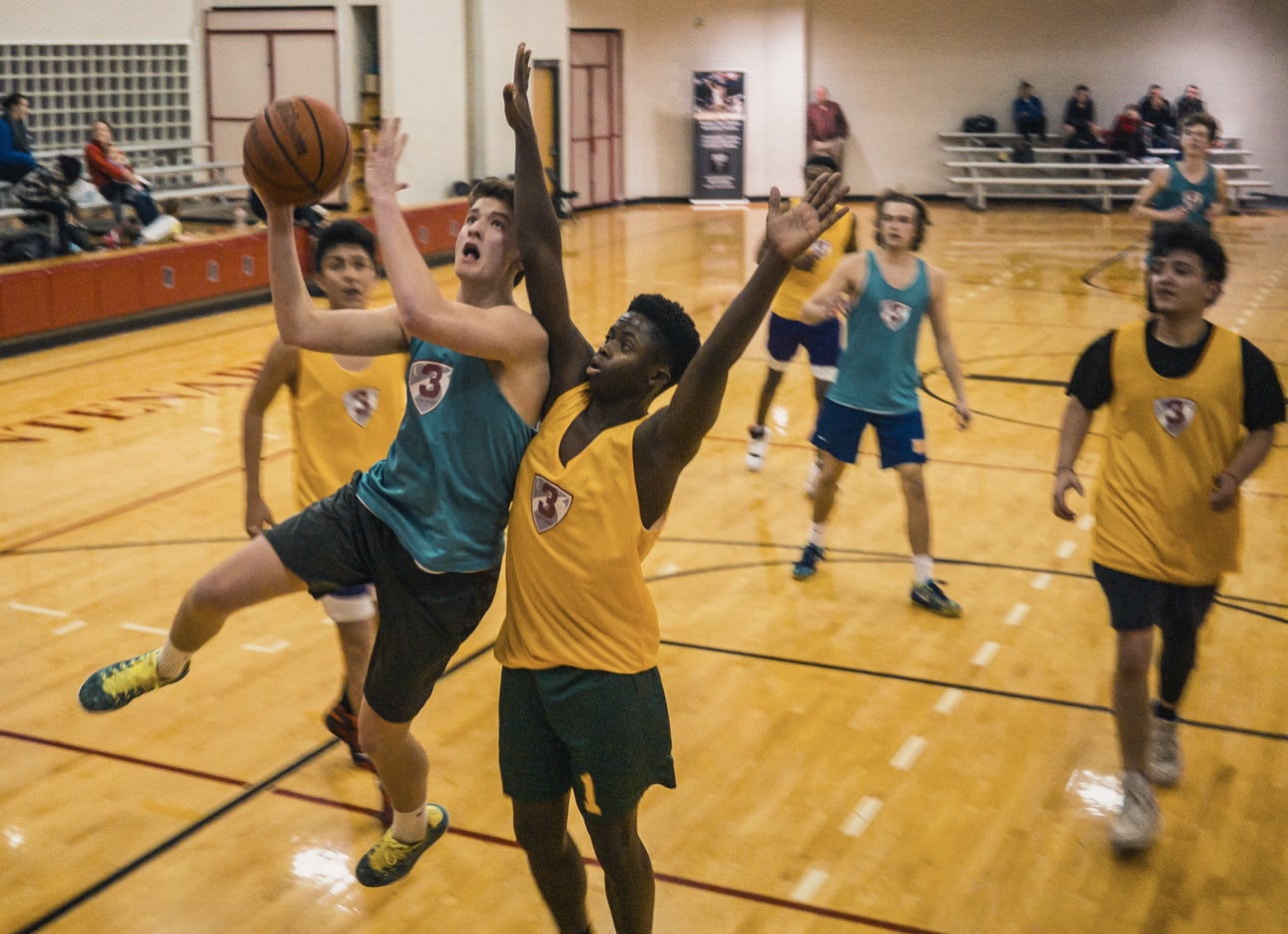
Las reglas eran claras y preveían que cada joven entrara y jugara al menos por 10 minutos. Las excepciones a la regla se referían a aquellos que habían saltado algún entrenamiento o que habían violado alguna otra regla. Casos que, desgraciadamente, eran bastante normales.
En tal caso el entrenador redactaba un informe sobre los motivos por los cuales el jugador en cuestión no había jugado los minutos mínimos establecidos conmo norma. Después de todo más que una actividad competitiva, era una actividad recreativa.
Faltando cuatro minutos para terminar el partido el entrenador Kevin dirigió su mirada hacia el banco de suplentes e hizo una señal a un jovencito de nombre Marx con el clásico gesto del malhumor que siente quien no puede jugar.
-Quieres entrar? le preguntó el entrenador.
Sin responder a la pregunta el joven se acercó a la mesa de los jueces esperando la próxima interrupción del juego.
Sus infracciones eran numerosas: entrenamientos saltados, lo mismo para las lecciones de la escuela, calificaciones muy bajas, prdida del uniforme y la lista podía seguir hasta (casi) el infinito.
Pero en el basquetball era una estrella. O, al menos, aspiraba a serlo. Dotado de un talento natural era el prototipo de jugadores absolutamente convencido que solo con ello bastaba. Tratar de hacerlo entrenar o enseñarle nuevas técnicas del juego era una tarea sumamente ardua. Casi imposible.
Y el entrenador se había dado cuenta y trataba de manejar la situación con mucho equilibrio y diplomacia. Era su regla cuando trataba con jóvenes provenientes de barrios degradados y con un sinfín de problemas familiares sobre sus espaldas.
Marx tenía solo doce años. Pero era el mejor jugador del plantel. No le gustaba pasar el balón ni defender. Dribleaba y convertía. Y apenas un par de minutos después de entrar ya había marcado seis puntos, evitando ágilmente el marcaje de jugadores mucho más grandes que él.
De todas maneras la suerte de su equipo estaba echada. Muchos puntos para recuperar. Imposible la remontada. Y todos los sabían. Solo esperaban que el reloj marcara el final del encuentro. Y que la diferencia no fuera tan abultada.
En dos años como entrenador de los Black Knights había disputado 36 encuentros ganando 12 y perdiendo los restantes 24. Un promedio del treinta y tres por ciento. Bastante bajo en realidad. Si hubiera un descenso seguramente estarían condenados a él.
Pero no lo había. Y por ese motivo en los partidos había poca fricción y se jugaba con bastante libertad. Lo que permitía descubrir promisorios talentos. Como Marx.
Era su última temporada como entrenador y muchas veces se preguntaba como una persona sana de mente, con una profesión (casi) a sus espaldas, con un futuro promisorio como abogado (solo le faltaba dar el examen para la habilitación de la profesión), podía dedicarse a entrenar de su propia voluntad. Estaba cansado.
Cansado de discutir con los padres que se preocupaban por qué sus hijos no integraban la plantilla titular pero no se preocupaban mínimamente de controlar su falta de asistencia a los entrenamientos.
Cansado de discutir con jóvenes árbitros que no sabían distinguir entre un bloqueo reglamentario y una falta en ataque.
En fin, cansado de muchas cosas. Seguía el partido y, de en cuando, gritaba o daba alguna instrucción. Más que nada por costumbre. Porque se suponía que, entre otras, era era la trea de un entrenador. No es que sus propios jugadores le hicieran mucho caso.
Faltaban dos minutos para el final y los Black Knights estaban abajo en el marcador de 11 puntos.
-1.jpg)
The rules were clear and provided that each youth would enter and play for at least 10 minutes. Exceptions to the rule concerned those who had skipped a training session or violated some other rule. Cases that, unfortunately, were quite normal.
In such cases, the coach would write a report on why the player in question had not played the minimum minutes established as a rule. After all, it was more than a competitive activity, it was a recreational activity.
With four minutes left in the game, Coach Kevin looked at the bench and signaled a young man named Marx with the classic grumpy look of someone who can't play.
-Do you want to come in? the coach asks.
Without answering the question the young man approached the judges' table waiting for the next break in the game.
His infractions were numerous: skipped training sessions, the same for school lessons, very low grades, loss of uniform and the list could go on to (almost) infinity.
But in basketball he was a star. Or, at least, I aspired to be one.
Gifted with natural talent, he was the prototype of players absolutely convinced that this alone was enough. Trying to get him to train or teach him new techniques of the game was an extremely difficult task. It was almost impossible.
And the coach had noticed this and was trying to handle the situation with a lot of balance and diplomacy. It was his rule when dealing with young people from rundown neighborhoods and with a host of family problems on their backs.
Marx was only twelve years old.
But he was the best player on the team. He didn't like passing the ball or defending. He dribbled and converted. And just a couple of minutes after he came on, he had already scored six points, nimbly avoiding the marking of players much bigger than himself.
In any case, his team's fate was sealed. Many points to recover. Impossible to recover. And everyone knew it. They were just waiting for the clock to strike the end of the match. And that the difference would not be so great.
In two years as coach of the Black Knights, he had played 36 games, winning 12 and losing the remaining 24. Pretty low, actually. If there was a relegation, they would surely be doomed to it. But there wasn't. And that's why there was little friction in the games and it was played quite freely. This allowed promising talent to be discovered. Like Marx.
It was his last season as a coach and many times he wondered how a healthy person, with a profession (almost) behind him, with a promising future as a lawyer (he only had to take the exam for the qualification of the profession), could devote himself to training of his own will. He was tired.
Tired of discussing with parents who were concerned about why their children were not on the regular staff but were not at all concerned about controlling their lack of attendance at training sessions.
Tired of arguing with young referees who didn't know the difference between a regulation block and an offensive foul.
In short, tired of many things. He followed the game and, from time to time, he would yell or give some instruction. Mostly out of habit. Because, among other things, it was supposed to be a coach's trick. Not that his own players paid much attention to him.
With two minutes to go and the Black Knights were down by 11 points.
-2.jpg)
Congratulations @hugo1954! You have completed the following achievement on the Hive blockchain and have been rewarded with new badge(s) :
You can view your badges on your board and compare yourself to others in the Ranking
If you no longer want to receive notifications, reply to this comment with the word
STOP